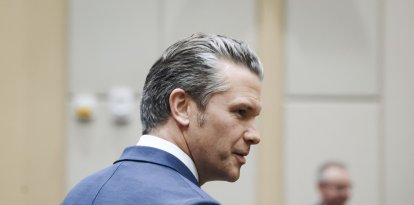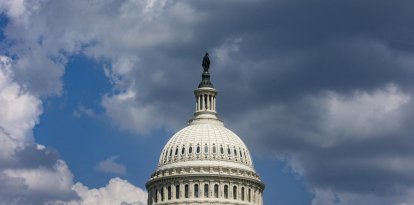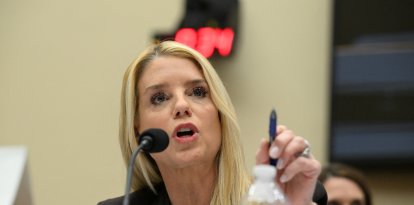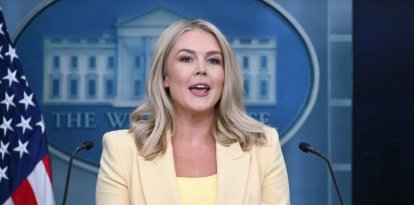If Trump returns to the White House, he will revoke the Temporary Protected Status for Haitian migrants: 'You have to remove the people'
The former president emphasized that his position is not directly linked to Haiti but to the need to protect U.S. cities.

Donald Trump during a press conference at the White House in Washington D.C.
Donald Trump has declared his intention to revoke Temporary Protected Status (TPS) for Haitian immigrants if he returns to the White House. In a recent interview with NewsNation, the former president argued that his proposal seeks to repatriate these immigrants, noting that Springfield, Ohio, has been "overrun" and that restoring order to the community is critical.
"You have to get the people out"
During the interview, Trump emphasized that his stance is not directly linked to Haiti but rather responds to the need to protect American cities. "It has nothing to do with Haiti or anything else. You have to remove the people, and you have to bring them back to their own country," he said, describing Springfield as "a beautiful place" that has been affected by the growing influx of immigrants.
Background on immigration policy
During his tenure, Trump and his administration attempted to end Temporary Protected Status (TPS), which allows Haitians to obtain residence and work permits in the United States. In 2017, the then-president announced the termination of TPS for Haitian nationals, which would have led to the deportation of thousands. However, implementation of this measure was postponed due to legal challenges and changes in immigration policy under the Joe Biden administration.
The Biden administration restored TPS for several groups of immigrants, allowing approximately 309,000 Haitians to remain in the United States until February 2026.
Impact on Springfield
Springfield, a city of about 60,000 people, has experienced the arrival of about 15,000 Haitian immigrants in recent years, according to figures from The Associated Press. Both Trump and his running mate, Senator JD Vance, have highlighted this situation in Springfield as a representative case of the challenges facing local communities in the face of immigration.
In light of Springfield's difficulties, Ohio Governor Mike DeWine has committed to sending law enforcement to support local authorities and allocating additional resources for medical care. This response seeks to address problems stemming from the increase in the immigrant population and ensure that the community's services remain adequate for all its residents.

























